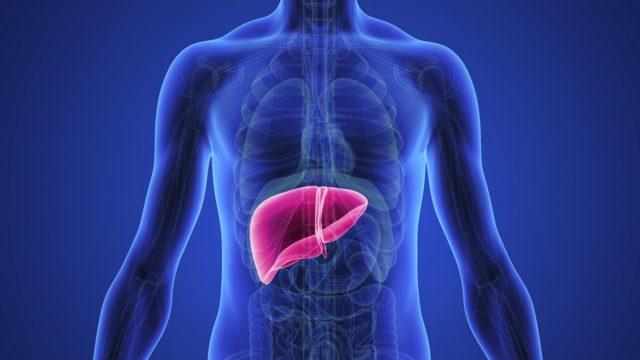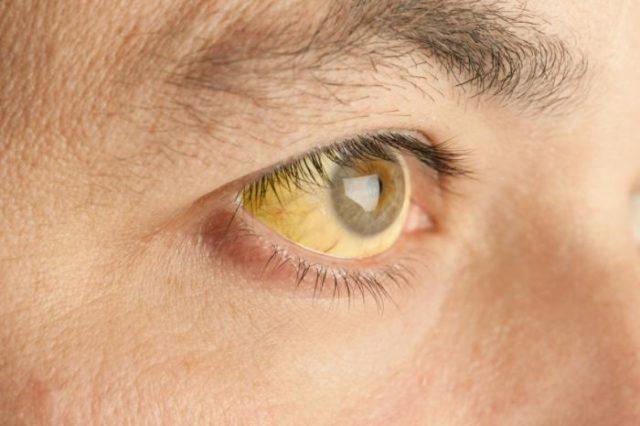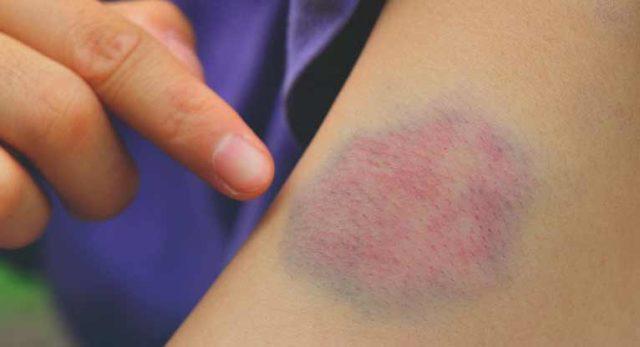Forget about Superman and Batman, the real superhero to be celebrated is the liver! It truly is a life-saver, with its superpowers being that it works smoothly like a well-oiled machine, purifies our blood, aids in digestion, fights against infection.
But the liver too has its own Kryptonite, these can be in the form of swelling, scarring, cancer, or even consuming too much Tylenol. Such issues may prevent the liver from doing its natural self-healing and as the American Liver Foundation warns: “Anything that keeps your liver from doing its job — or from growing back after injury — may put your life in danger.”

There are a few ways in which we can detect such damages of our liver. This will help identify the issue and rectify it as early as possible, and this could end up saving your life. Although the liver is an organ that lies inside our bodies, there are a few external signs that show themselves when something has gone haywire.
Some of the main symptoms of liver damaged are as follows:
1. Jaundice – Yellowing of Skin and Eyes
Commonly known as Jaundice, the U.K.’s National Health Service lists the yellowing of one’s skin and the whites of their eyes as a symptom of liver damages.
The U.S. National Library of Medicine states that this occurs as result of a yellowish substance called Bilirubin building up in excess in the blood, because the liver is unable to accurately process it when it is injured.

This is a symptom that commonly presents itself when the liver gets damaged due to a few particular diseases such as hepatitis, cancer or as a result of excessive drinking, consuming of and exposure to toxic elements and drugs like ecstasy which could lead to a plethora of infections.
2. Bodily Waste
The National Health Service explains that Jaundice could cause changes in the bowel movements and bodily waste of someone, namely the color of their urine and stool. The urine of a person with Jaundice will appear darker in color and their stool will seem lighter. Dark-colored urine refers to colors like orange, brown, amber, or rust-like (like a cola).
It’s normal for the color of your urine to change throughout the day based on what foods you eat and how much water you drink, but dark-colored urine is something that should grab your attention. If you observe this at some time, make sure to drink plenty of water and take note the next time you go to the bathroom. If the color persists, it might be time to consult a doctor.

3. Itching
According to the Mayo Clinic, along with kidney failure, hyperthyroidism, and cancer, liver disease could be an underlying reason for chronic itching of the skin. This kind of itching affects the entire body, and usually does not show any external signs, other than maybe the blemishes and scars that appear due to recurrent scratching.
This itching is caused by excess bile build up in the body. The liver constantly produces bile to help gets rid of the body’s waste and help your intestines absorb dietary fiber. As we know, the body is like a machine, and when one of the parts of the production line breaks down, it can affect everything else as well. When the liver is facing issue, the bile isn’t able to effectively work as it is supposed to, resulting in the feeling of itchy skin.

4. Bruising and Bleeding
Of course, everyone has experienced the phenomenon of a suddenly appearing bruise, but if it seems like it’s happening more often, then it might be pointing towards something far more serious than you just being a clumsy person.
According to the National Institute of Diabetes and Digestive and Kidney Diseases, a person with liver damage might bruise or bleed more often than a regular person because their liver is not able to function at its full potential.
One of the main jobs of the liver is to harvest several clotting factors and proteins that are necessary for blood clotting, which when liver damage occurs, tend to slow down or stop in its creation. This is why one of the early symptoms of liver disease is that you may bruise or bleed more easily.

5. Swelling and Bloating
The Mayo Clinic says that water retention may occur when the liver is damaged, resulting in the swelling and bloating of one’s stomach, arms, and legs. As the liver is one of the most important elements of the body that keep it running smoothly, an issue in it can manifest itself in various different ways. It’s the same concept of a production line that we mentioned earlier, really.
As liver damage affects the normal blood flow in the liver, pressure is built up in the veins that carry blood amongst the intestine, the spleen and the liver. This can cause an enlarged liver which shows itself on the outside as a swollen abdomen. Liver damage can also sometimes lead to water retention, which will cause a bloating of the arms and legs, in particular.

6. Symptoms Not Present
Not everyone with liver damage will experience symptoms. Some people might go about their daily lives without any such indication. The University of Iowa Hospitals and Clinics says that up to half of those with liver damage will not show any signs of it in the early stages.
And in some cases, although the signs are shown, they end up being non-specific in the form of tiredness, lack of enthusiasm, occasional itching, sleepiness, etc. These could be the sign of a whole host of physical and mental health issues, or they might even be just the result of a person overworking themselves.
Not showing any signs could possibly end up being life-threatening, because once liver damage has gone past its early stages and has been left untreated, the reparations and side effects become dire. The American Liver Foundation warns that liver damage could cause one to:
- Experience nausea and queasiness
- Irregular digestion, irritation of bowel movements, and diarrhea
- Blood vessels forming that could cause the liver to burst
- Building up of toxins in the brain and interfere with mental function
As the foundation says: “As liver failure progresses, the symptoms become more serious,” They also say: “The patient may become confused and disoriented, and extremely sleepy. There is a risk of coma and death.”
It is important to detect liver damage as early as possible to prevent such life-damaging situations. If the damage has progressed too far, a liver transplant might be the only option left to save someone’s life.



